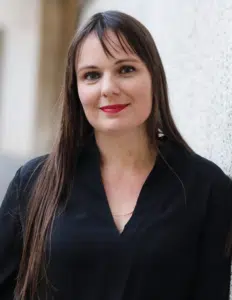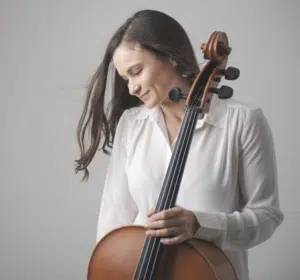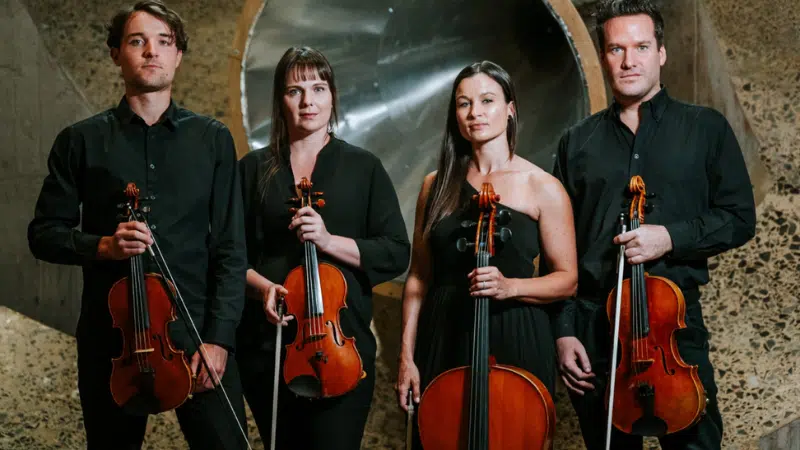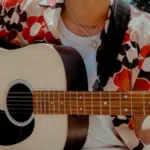Unfiltered Africa is BACK with another episode featuring talented South African based artists, Annien Shaw and Babette Roosenschoon from Juliet String Quartet! 🎻✨ With this video series, we chat with some amazing Symphonic artists and get a closer look at everything they’re working on, personal stories, passion projects and so much more. Read the full interview below…
Unfiltered Africa: Full Interview with Juliet String Quartet
Annien Shaw (AS):
“Hi! We are Annien and Babette, two members of the Juliet String Quartet based in Cape Town, South Africa. We are so happy to be here with our Unfiltered interview.”
Daphne Barquin (DB):
“Hey there! Let’s get started. Would you like to discuss the role of chamber music within the classical music landscape? We can start there, like how does the Juliet String Quartet seek to uphold and evolve through that landscape as well?”
(AS):

“As a South African string quartet, we find it’s very important to showcase South African works, especially by young and upcoming composers. We feel it’s unnecessary to be the 700th quartet to play European, Western classical music. And we find it more important to showcase what talent is homegrown and to be instrumental in supporting local composers on local platforms. Doing this keeps us current, not just with classical music audiences, but also with young and upcoming artists in the country, too.”
(DB):
“What do you feel are some of the unique challenges and rewards of performing and teaching classical music in South Africa?”
Babette Roosenschoon (BR):
“I would definitely say… the classical industry in South Africa is quite small. So that means we all get an opportunity to play quite a lot. We’re on stage a lot. We have the opportunity to perform a lot. And when it comes to teaching, it means that everybody that you have the opportunity to teach in the end become your colleagues. So you put in quite a lot of effort to make sure that they are on a good standard to join you on this platform of being a South African classical musician.”
(DB):
“That’s so interesting. So, both of you are teachers?”
(AS):
“Yes, we are.”
(DB):
“That’s amazing… I have so much respect for those who teach.”
(AS):
“Practice makes perfect!”
(DB):
“That is true… That being said, can you share some memorable experiences from your performances or collaborations that you feel have left a lasting impact on you?”
(AS):
“One of the most memorable experiences was how this whole situation started. We were a generation of Quartet players who have occasionally been asked to play with our mentors and teachers or lecturers. And eventually, we got to the point where we felt we didn’t need that invitation anymore. So we banded together and formed our own group.”
“Because we formed this group, there was a local composer’s convention, or group, called Kompos that invited us to come and showcase all the works that they were experimenting with that year. And that’s basically how this got started, as they knew we were open-minded enough to try everything new. We were young enough to not be swamped at that point, and we had the time to invest in this kind of new music, which kind of set us on this path. That is the most memorable thing of this group, I believe. Where we started and how it started. It was 100% a team effort and collaboration.”
(DB):
“I love that. That is a beautiful origin story. How long have you guys been in the quartet for?”
(AS):
“Ten years.”
(DB):
“Wow, that’s amazing.”
“I’m wondering as well, how did the concept of your debut album come about?”
(AS):
“Yes, ‘Maike’ So, what happened was in the 10 years of us performing together, we always included one South African composition in our repertoire, which means every time we walked on stage, we carried one of our local composers with us. After doing this for eight, nine years, and in lockdown, we decided since we have the time and there’s no performances happening, let’s do this.”
“Let’s take all these South African works we, and composers we’ve been working with over the last decade, have and put an album together showcasing what we’ve got here and what we’ve done. Some of the works were written for the album by composers we’ve worked with before, and some of them were works that we had already performed on stage and liked very much and revisited for the sake of the album. The title, ‘Maike’ is actually the last piece on the album and it was dedicated to a friend of the Quartet who had passed away… And that’s how the concept of the album came about.”
(DB):
“Wow… You know, I was listening to it earlier and I thought to myself, ‘wow, this is so pretty. It’s just so beautiful.'”
(AS):
“Yeah, we love that work.”
(DB):
“So looking ahead, what are your aspirations and vision for the Juliet string quartet and how do you hope to continue evolving and making an impact in the classical music world?”

(BR):
“At the moment, we’re creating a platform for South African composers to be able to write more and have their music performed with the possibility of recording. We have already put together a few works and have sent out a call for composers to compose for our hopefully upcoming album.”
“We also definitely hope that this encourages, not just composers to compose, but for string quartets in general to open up their ears a little bit and not constantly just be expecting the old brothers on stage, Beethoven, Haydn and everybody, to not be so frightened when they see a new name on a program just because it’s not something that they are accustomed to hearing or seeing.”
(DB):
“In what ways do you think digital distribution platforms are shaping the future of classical music in that regard?”
(AS):
“You don’t have to go through a distribution platform anymore to get your music out there, but we found pairing up with Symphonic, and especially Tamsanga and the guys from Symphonic Africa, has been very useful. We felt that it gave our platform and our album a boost that we would not have gotten on our own. And we can see by the audiences that attend our concerts now, they’re younger and they are those people that we would not have reached through our own social media and adverts.”
They are definitely people we have never seen before. It’s definitely affected our audiences. It’s reached a different target audience than the usual concert goers. And also because of this, more composers have reached out to us about writing music. And since we’ve opened a publishing house for this purpose, we’ve been approached by so many composers to bring out new music.”
(DB):
“That is amazing, especially because it’s not such a mainstream genre. You guys are doing such a great job to share it with the masses.”
(AS):
Thank you! We really hope the next one’s coming out in 2025. We’ve already got three listed that we want to do, but we need about two more to make a full album. So yeah, hopefully we’ll hit the studio early next year and bring out the next one.”
(DB):
“Looking forward to it. I just have one more question for you guys… How did the name come about?”
(BR):
“Oh, it was quite a surprise to me, I must say. We had been talking about what to name the quartet, and we had shot through a couple of ideas. At that time, I was pregnant with my firstborn child. And when she was born, I named her Juliet. So the other three members of the quartet came to me and they said, they’ve decided what the name is… and they decided on Juliet. Of course, I was on board immediately.”
(DB):
“Awwww! That is so cute! Thank you so much for participating in our Unfiltered interview. We wish you the best of luck with your upcoming performances, and I truly hope it’s even more than amazing. Thank you, again!”
(AS):
“It was so nice meeting you… Thank you very much. Bye!”
//
Want more?
Listen to Juliet String Quartet on Spotify…



